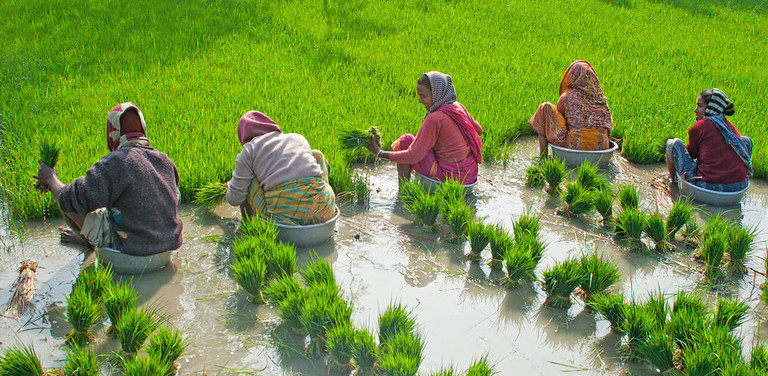The term “feminization” of agriculture is used widely, but inconsistently. Two main narratives can be distinguished (Doss et al 2021, forthcoming). The first is negative. It captures and documents that women’s workload in agriculture is increasing, yet women lack the resources needed for success like access to extension services, credit, hired labor, and so on. Women are thus “left behind” and “left out” as men move into more lucrative off-farm economic activities. In this interpretation, the consequences for agri-food systems can be concerning or purely negative. The second narrative frames feminization of agriculture as an opportunity for women’s empowerment and improved gender equality as women get more autonomy and their visibility and voice increase. This interpretation suggests that the feminization of agriculture could have positive effects on agri-food systems.
The problem with these two narratives is that the reality is more complex. In order to get a better understanding of what is happening on the ground, research teams from across CGIAR have been working since 2018 to explore the dynamics and impacts of the feminization of agriculture in various cultural and geographic contexts and across different agricultural value chains.
Programme
Presentations
- Gender and feminization processes in wheat agriculture in South Asia, Cathy Farnworth, Independent Consultant
- Gender and Youth Employment in Agricultural Value Chains, Kate Ambler, Research Fellow, International Food Policy Research Institute
- Exploring feminization of agriculture through gender dynamics across scales, Alessandra Galiè, Team Leader, Gender, International Livestock Research Institute
- The use of ICTs to challenge gender stereotypes and empower women farmers in the age of feminization of agriculture, Els Lecoutere, Science Officer, CGIAR GENDER Platform
Introduction Rhiannon Pyburn, NL-CGIAR Senior Expert and Senior Advisor at KIT Royal Tropical Institute; Leader of Collaborative Gender Research cluster in the CGIAR Research Program on Policies, Institutions, and Markets (PIM).
Discussant Ruth Meinzen-Dick, Senior Research Fellow, International Food Policy Research Institute; Co-leader of Governance of Natural Resources flagship in the CGIAR Research Program on Policies, Institutions, and Markets (PIM).
Moderator Frank Place, Director, CGIAR Research Program on Policies, Institutions, and Markets (PIM)
Read more about the PIM webinars.
(Note: the given times are given in EDT time!)
